INFLUENCE OF THE DIFFERENT VISIONS OF POPULAR EDUCATION IN TEACHER'S PEDAGOGY
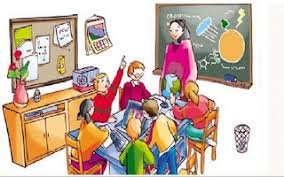
Source
When Speaking of Popular Education mention is made of the methodological system, inevitably plural and dynamic, whose objective is to provide the transforming action of popular sectors for the progress of their living conditions. It can also be said that it is a process of collective learning of the people, which aims to strengthen their organization in order to transform reality according to their interests, and which gives a pedagogical response.
Sacristán G, (1999) points out: Although education is nourished by a conquered culture and is therefore reproductive, it finds its most modern meaning as a project, inasmuch as it has the capacity to bring out men and women and bettes societies, a better life; that is to say, that he finds his justification in transcending the present and all that is given. Without utopia there is no education. (p.30)
What Sacristán points out to us, is the principle that should guide our educational work is to become aware of the role we have as educators, taking care to avoid that the child is limited to being one more piece of social, political, cultural, economic technology, propitiating the development of skills and values that allow us to configure ourselves as true human beings.
As Simon Bolivar, (1819) "Morals and lights are the poles of a Republic, moral and lights are our first needs." (Speech of Angostura). Popular education is a methodological need to concretize in each context to build creatively and opportunely, but firmly among related people, it is a collective task, since it is nurtured simultaneously from several dimensions of reality: previous theoretical referents, collective imaginaries, representations and cultural values, shared experiences, in addition to reflections on the educational practices themselves.
Reflecting on the pedagogy of Paulo Freire, Simón Rodríguez and José María Vélaz and how their contributions influence the teacher's training, I can emphasize that:
From the pedagogue Paulo Freire I consider that his greatest work was the Pedagogy of the Oppressed, which speaks of the humanization of the popular strata, that is to say, it speaks of the importance of Popular Education to achieve a better, more democratic world. In the words of Paulo Freire, (1974) "To be a valid instrument, education must help man, from everything that constitutes his life, to become subject" (p.87). According to Freire, we must support students to be in the world, to commit themselves to it, through reflection on their situation in it, examining and criticizing the daily acts that are done routinely, so freely choose your relationship with the world, with others and with yourself.
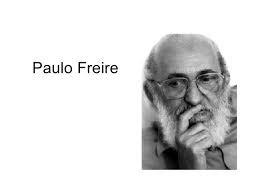
Source
In my opinion, Paulo Freire, as an innovator of pedagogical thought, sought that the teacher stops being a passive entity and becomes an active entity in the educational process, that we have a teaching attitude of inter-learning so that we can contribute to the construction of a just social order . Through computer classes you can put Freire's ideals into practice, through interaction and educational innovation, thanks to the awareness process that allows us to use technologies that allow us to obtain knowledge of socio-cultural reality and be in a constant reflection on the practice.
Robinsonian thought derives the proposal of the school as a formator for life, through learning for work, the creative task and the liberating thought of consciences, as tools that allow citizens to participate actively in the public and political life of the country. Simón Rodríguez, (1849) points out that the historical and political being is constituted through the interaction of subjects within different power relations: free cooperation, solidarity and the common good or collective purpose of the individual beneficiary: "think about all for everyone to think about you"
Hence, what is pursued is to form a citizen for freedom, aware of himself, of his historical and social commitment to bring welfare, happiness, fraternity and justice to the brothers who make up the planetary unity. The Bolivarian Educational System has its pedagogical basis in the Robinsonian thought, as well as in the currents of social humanist thought. In this sense, education becomes a social process that emerges from the root of each people, oriented to develop the creative potential of each human being and achieve the full exercise of their personality, in a democratic society, based on ethical valorization of work and active, conscious and supportive participation in the processes of social transformation.
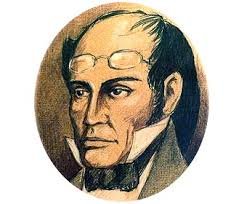
Source
Undoubtedly, we must seek guidance in the philosophical thoughts of Simon Rodriguez, promote through the use of Information and Communication Technologies (ICT), popular education, it is the most effective way that can consolidate learning processes to form humanistic beings that learn to think about the other, contributing to form a humanistic society, since Information and Communication Technologies (ICT) are considered as powerful collaboration tools, since they allow to generate adequate spaces for interaction and the exchange, favor the implementation of values such as solidarity and promote new strategies of communication, collaboration and dialogue among all.
From the founder of Fe y Alegría, Father José María Vélaz, it can be said that he was able to sow his life in fertile land and fertilize it with service and dedication. Therefore, he raised great harvests in the hearts of crowds. He considered that popular education should promote the formation of students for a more just and humane society, where students are trained with critical aptitude for life, authors of their own education and builders of their own future with habits of self-management. To carry out in our teaching practices the ideals of Father José María Vélaz, it is very important and can be strengthened through the use of videos, projections and / or reflections on the universal values in students, also through the use as a learning resource of the office tools, because they allow to strengthen the freedom of expression, assertive communication, responsibility and teamwork in them.
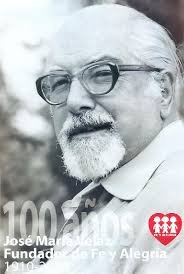
Source
The different views of popular education allow us to understand the importance of them and how to apply them we can strengthen the teaching - learning processes in our educational institutions and therefore in our society.
Classes are recommended in the classrooms:
- Generate a climate of proactivity in the classroom.
- Promote communication processes to achieve interaction between students with common interests.
- Promote the use of ICT, from a humanistic approach, creating spaces for creation and reflection.
- Promote solidarity among students.
- Promote competitiveness and cooperation in students.
- Forge a citizenship that dignifies the use of technologies as a factor of human and social development.
- Consolidate the pedagogical use of ICT.
- Promote cooperation, reciprocity and corresponsability among students, teachers and community.
In addition, we as teachers must be co-responsible for the teaching processes in the classroom, and assume an attitude of reflection and investigation of the context in the investigation of new approaches to achieve socio-educational changes that allow us to build a new society more humane and just, that is, to move towards a better world for all.
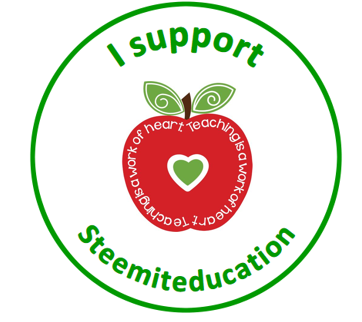
Congratulations @alejandra40! You have completed some achievement on Steemit and have been rewarded with new badge(s) :
Click on the badge to view your Board of Honor.
If you no longer want to receive notifications, reply to this comment with the word
STOPTo support your work, I also upvoted your post!